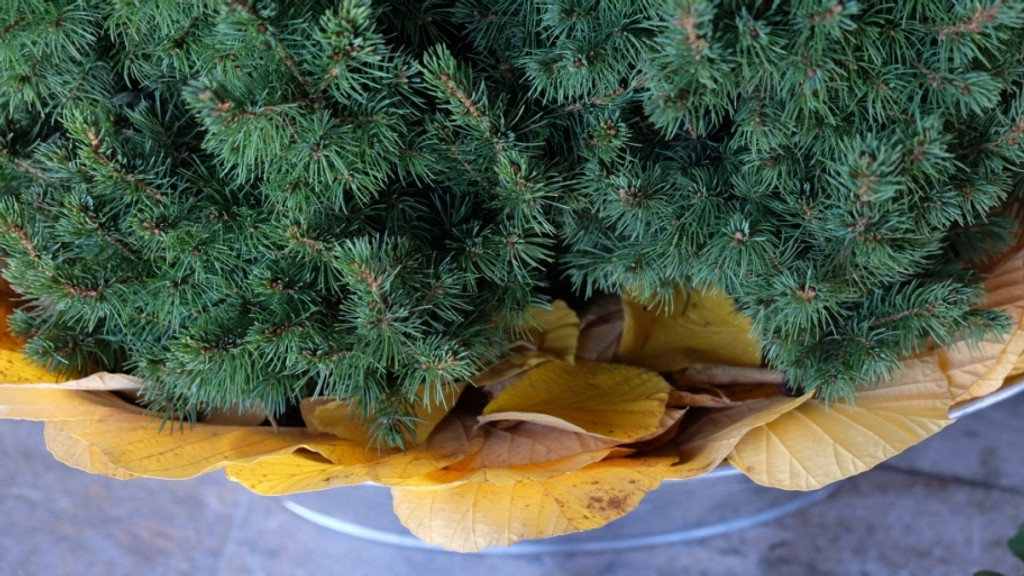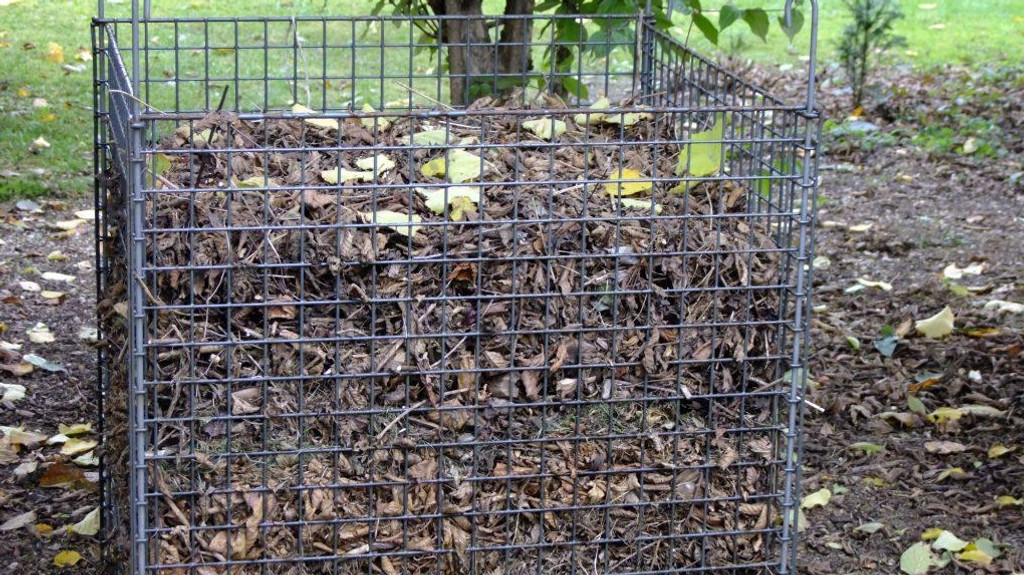It’s falling, rustling and piling up: The first leaves are falling and in many places people are already busy raking and sweeping. But where to put the piles of leaves? leaves are a valuable raw material for the garden.
It’s autumnal, the weather often cool and damp. The trees are turning colors and losing their leaves. Hardworking gardeners are already starting to rake and sweep. One problem is disposing of the piles of leaves.
Contents
- 1 Leaves are valuable biomass
- 2 Piles of leaves – a winter home for hedgehogs and co.
- 3 Collect leaves and compost them
- 4 Leaves as soil protection from the winter cold
- 5 Foliage – the best winter protection for potted plants
- 6 Composting leaves
- 7 Leaf composters for certain types of leaves
- 8 Here the foliage must go
- 9 Leaf vacuum cleaners: a health hazard
- 10 Death trap for microbes
- 11 Author
Leaves are valuable biomass
Biowaste must be collected separately to make it easier to recycle. This is because valuable biomass is lost through incineration, argue environmentalists and the European Environment Ministry. In addition by the burn of the usually damp garden wastes also many pollutants and fine dust are set free. The humidity leads to strong smoke development. This not only stinks, but can also be a problem for allergy sufferers and people with respiratory diseases.
Piles of leaves – a winter home for hedgehogs and co.
Burning leaves and garden waste also becomes a deadly hazard for many small animals that have sought shelter in the piles – as is always the case, for example, with Easter bonfires. Why not deliberately build the animals a shelter for the winter? Layer the leaves in a large pile in a quiet corner of the garden. Several spruce branches placed on top prevent too much moisture from penetrating or the wind from blowing everything away. Many beneficial insects make themselves at home in the leaves over the winter, from hedgehogs to ladybugs.
Collect leaves and compost them
Instead of sweeping up leaves and disposing of them via organic waste garbage cans or municipal green waste collection points, it’s best to compost garden waste on your own property. In the wild, autumn leaves become humus again, from which plants obtain nutrients to sprout fresh leaves again. The old, shed leaves are just one stop in nature’s cycle. Those who understand this will never see autumn leaves as useless waste, but will recycle them – for example, as mulch on cleared beds or in raised beds, says BR gardening expert Karin Greiner.
Leaves as soil protection from the winter cold
Under a leaf cover, the soil remains well protected over the winter. The soil organisms, above all earthworms, are pleased. In spring, most of the leaves have already decomposed and the bed is ready for the next sowing season. Leaves can also be swept under trees and shrubs, where they keep the roots warm and provide lost nutrients. In perennial borders, foliage between flowers serves as natural winter protection. It keeps off both sharp frosts and icy winds and, above all, too strong temperature fluctuations.
Foliage – the best winter protection for potted plants
You can also use dry autumn leaves to wrap up potted plants that will spend the winter outside: pile up roses, wrap up lavender bushes or cover planting areas with bulbous plants. Well padded by the foliage, the winter can hardly do any harm.

Composting leaves
Quickly decomposing leaves from maple, lime, ash, birch, willow, black locust and many shrubs such as hazel, forsythia or elderberry can also be put on the compost in small quantities. Mixed with grass clippings, kitchen waste or other green waste, it decomposes quickly there. Simply shred it with the lawn mower and it will rot faster.
Leaf composters for certain types of leaves
Leaves from oaks, sycamore trees, walnut trees or poplars contain many tannic acids and therefore rot very slowly. They should not be added to compost like other types of foliage, but can be composted separately, for example in a plain wire composter. Even if it takes several years for such leaves to turn into fine humusy leaf soil, it is worth it: it has a low pH value and is therefore ideal for all plants that prefer acidic soil.

Here the foliage must go
Leaves, on the other hand, must always be removed from the lawn so that the grasses underneath do not rot. Paths and stairs are also swept so that you do not slip on wet leaves. Leaves should be fished off a pond immediately, before they sink and rot at the bottom of the pond. There, as it rots, it deprives aquatic animals and plants of vital oxygen and releases putrefactive gases.
Leaf vacuum cleaners: a health hazard
Leaf vacuums and blowers may not be banned, but they are a pure torture for the ears: they get between 90 and 120 decibels loud, making as much noise as a chainsaw or a jackhammer. The Federal Environment Agency and environmentalists such as Nabu strongly advise against using leaf vacuums and blowers because they are loud, dirty and dangerous to animals and health. Devices with combustion engines also produce air pollutants that are usually blown into the environment unfiltered. Microbes, fungi and animal droppings living on the ground and in the foliage are finely dispersed into the air by such gardening equipment, which is a health hazard, especially for users.
Death trap for microbes
When a leaf vacuum or blower catches them, beetles, spiders, centipedes, woodlice and amphibians don’t stand a chance. The suction, which generates air speeds of up to 160 kilometers per hour and suction rates of around ten cubic meters per minute, kills the animals and, in the case of devices with a shredding function, shreds them to pieces.

